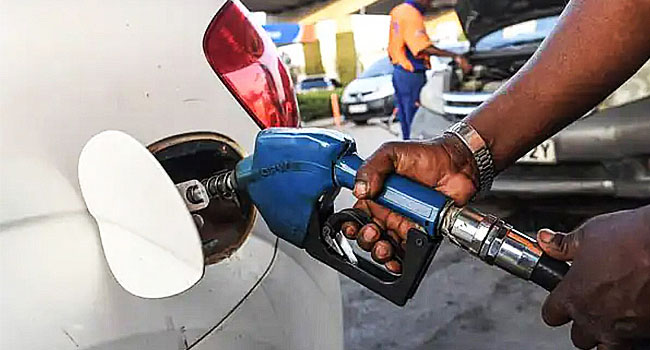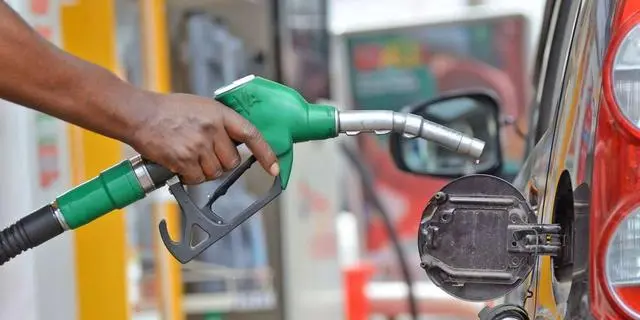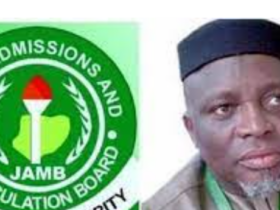Nigeria’s downstream petroleum sector is experiencing significant upheaval amid clear signs that the Federal Government may soon stop covering the cost of fuel subsidies, also known as under-recovery.
This shift is largely attributed to the escalating costs of petrol imports.
Industry insiders informed Vanguard that a price increase at the pump is imminent to allow the Nigerian National Petroleum Company Limited (NNPCL) to raise enough revenue to settle outstanding debts for products acquired on credit from international suppliers.

Predictions suggest that the new pump price might be around N1,000 per litre or higher, although some sources have estimated the landing cost of petrol at approximately N1,200 per litre, excluding delivery expenses to petrol stations.
Currently, NNPCL is struggling to obtain sufficient supplies to meet national demand, exacerbating fuel shortages over the past week and severely impacting both the transportation sector and the general public.
The shortage is partly due to some suppliers’ reluctance to extend credit and an increase in smuggling of petrol out of the country.
Transactional data obtained by Vanguard places the total landing cost of petrol—including product cost, financing, freight, port charges, insurance, storage, and regulatory fees from the Nigerian Midstream and Downstream Petroleum Regulatory Authority (NMDPRA)—at N1,205.52 per litre.
Adding transportation costs, marketers’ margins, and other dues raises the estimated official pump price to N1,405 per litre.
At the proposed N1,000 per litre price, the subsidy (under-recovery) would remain notably high.
This situation forces the government to choose between fully eliminating the subsidy or finding a compromise that splits the cost between the government and consumers.
NNPC Ltd has indicated it cannot sustain fuel importation at the current rising costs, and passing these costs onto consumers remains a challenging decision.
Bola Tinubu has authorized the use of the 2023 final dividends—totaling N2.1 trillion—due to the federation to cover the petrol subsidy.
Additionally, he approved the suspension of 2024 interim dividends to the federation to help NNPC manage its cash flow.
According to a presidency source, NNPC has also informed the president that it will be unable to remit taxes and royalties to the federation account due to the subsidy payments, which it refers to as a “subsidy shortfall/FX differential.”
From August 2023 to December 2024, NNPC’s cumulative petrol subsidy bill is estimated to reach N6.884 trillion, making it impossible for the company to remit N3.987 trillion in taxes and royalties.
In June 2024, NNPC alerted Tinubu that the subsidy payments were severely impacting its financial stability and its ability to maintain petrol imports, attributing this to “forex pressure.”
After the subsidy removal in June 2023, NNPC initially saw savings of N400 billion per month, which allowed it to remit N2.032 trillion in taxes and royalties into a sequestered account at the Central Bank of Nigeria (CBN) by January 2024.
However, starting in August 2023, rising importation costs led to a subsidy bill that climbed from N52.73 billion in August to N665.60 billion in November, due to naira depreciation.
Given this context, petroleum marketers anticipate a new fuel pump price announcement from the government this month.
An anonymous source commented: “We expect market dynamics to be driven by supply and demand. However, the government will likely continue to influence the market through the NMDPRA, which is responsible for regulation and compliance.”
NMDPRA’s Chief Executive, Engr. Farouk Ahmed, did not respond to calls or text messages. Oil marketers, facing challenges such as foreign exchange issues and high costs, have indicated they are not planning immediate imports.
Adetunji Oyebanji, Managing Director of 11 Plc, noted that earlier attempts to import were hindered by forex instability and the naira’s devaluation, which have impeded marketers’ ability to procure petrol.
“However, the situation with Forex is now steady (away from the jumps) and yes, marketers will import if they are given the chance to. There is no challenge if they are called upon to serve.
“As long as everyone is selling in a competitive price range, we will import. “If prices are set at an economic level, other suppliers might enter the market, improving supply and reducing financial strain.”
In an interview with Vanguard yesterday, Elder Chinedu Okoronko, the former national president and current Board of Trustees Treasurer of the Independent Marketers Association of Nigeria (IPMAN), stated that marketers are ready to import if they are given the same opportunities as NNPCL.
He said: “Government should create a benchmark for marketers importing petroleum products to recover their investment on petroleum products, there should be a threshold for government to get marketers involved in the procedure.
The Managing Director of a prominent transport company with multiple offices nationwide, who preferred to remain anonymous, told Vanguard that fuel scarcity has been a major issue for transporters across the country.
He wondered: “Has there been any time that fuel is available in the country? We have resolved that whatever price we buy, we shall review the fares to break even. We won’t be working without making a profit,”
He lamented that local governments are exacerbating the situation with various levies on the transport company.
He said: “In Enugu, Abia, Rivers, Cross River, and many others collect not less N5,000 each from every boss daily which they tag daily ticket. Also, security agencies extort drivers on the highways, making the business very difficult for transporters.
He also highlighted that drivers are facing hefty fines for failing to present the already suspended proof of ownership receipt issued by the government.
He attributed these issues to the nationwide increase in fares. For instance, a trip from Lagos to the eastern part of the country now costs about N30,000, compared to N15,000 a few years ago.
According to Vanguard’s findings, the fuel situation in Lagos and its surrounding areas has deteriorated due to a limited supply.
Many filling stations along Ikorodu Road, Agege, Iyana-Ipaja, Ikeja, Somolu, Bariga, Ogba, and Surulere were reported closed.
Motorists interviewed by Vanguard expressed frustration over the ongoing petrol shortage.
They also complained about the long lines at fuel stations and the rise in black market sales, with petrol prices in areas like Ikorodu, Epe, Badagry, and Ibeju-Lekki reaching N940 per litre and higher.
On a hopeful note, the Dangote Group announced the start of its petrol refining operations, raising expectations for increased domestic fuel supply.
Anthony Chiejina, Chief Branding and Communications Officer at Dangote Group, stated that the refinery, located on the outskirts of Lagos and built by Nigerian billionaire Aliko Dangote, has the capacity to meet local demand.
With a daily capacity of 650,000 barrels, Africa’s largest refinery aims to reduce Nigeria’s expensive reliance on imported oil products. Dangote Petroleum Refinery is currently conducting test runs and expects to begin petrol production by mid-September 2024.
Experts in the oil and gas sector have recommended that the Federal Government collaborate with local refineries to process the daily allocation of 445,000 barrels of crude oil for domestic use through a tolling arrangement.
Mr. Rabiu Bello, Senior Independent Non-Executive Director at Seplat Energy Plc, suggested that such collaboration would secure the petroleum products needed domestically and allow for the export of any surplus.
This approach would enable the Dangote Petroleum Refinery and other local refineries to operate profitably, achieving over 65 percent capacity utilization without requiring significant additional investments in crude oil supplies.
Bello also called for a forensic audit of NNPC/NNPCL’s financial records to determine the actual costs of importing and delivering petroleum products to Nigeria from 2012 to 2024.
Similarly, Mr. Henry Adigun, an oil and gas consultant, advocated for the full implementation of the Petroleum Industry Act (PIA) to improve operations in Nigeria’s downstream petroleum sector.
Adigun suggested that the current fuel scarcity could be alleviated if the government settled outstanding debts to importers and allowed fuel prices to adjust to market levels.
(Vanguard)
Follow the Parallel Facts channel on WhatsApp: https://whatsapp.com/channel/0029VaCQSAoHgZWiDjR3Kn2E









Leave a Reply